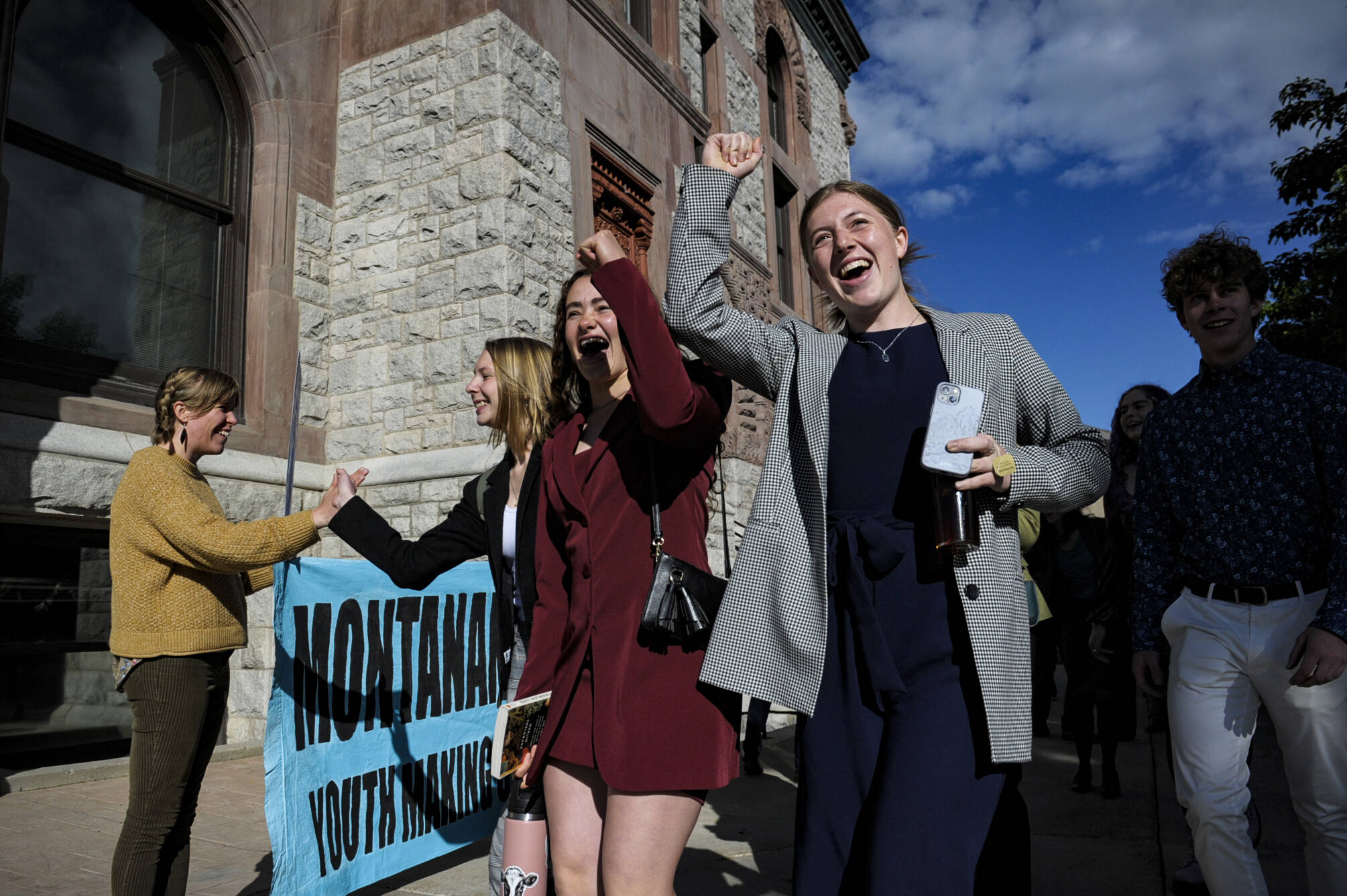A quote by attorney Andrew Welle in this story has been corrected to refer to the significance of the Sagoonick decision in Alaska, rather than the Montana ruling. A statement by Welle about the dissenting opinion in the Alaska case has been omitted.
A landmark environmental court ruling in Montana on Monday has striking implications for Alaska, particularly with the vow by the organization behind it to bring a similar case here. It won’t be the first time they’ve done it, but this time there’s a lot more science — and precedent.
The Montana case is being heralded as a groundbreaking victory because it is the first time a judge has found a governmental duty to protect citizens from climate change. The case, brought by 16 youths ranging in age from 5 to 22, found state agencies in Montana violated the plaintiffs’ constitutional right to a clean and healthful environment by permitting fossil fuel development without considering climate impacts.
An attorney with the firm that brought that case was the lead counsel for the Sagoonick case in Alaska, which also involved 16 youths. The lead plaintiff was Summer Sagoonick, an Inupiaq resident of Unalakleet, who emphasized Alaska Natives count on wildlife and the land for survival. The lawsuit targeted the governor, the State of Alaska and various agencies over greenhouse gas emissions.
The court dismissed the case in 2018, saying it more properly belonged before the state legislature. Our Children’s Trust appealed the decision, beginning an appellate process that concluded with a narrow loss in the Alaska Supreme Court in January 2022.
“The most important thing about the Sagoonick decision for Alaska is that it shows a path forward for the state’s youth to secure their right to a safe climate system,” said Andrew Welle, a senior staff attorney at the non-profit law firm Our Children’s Trust, which brought the case in Montana, as it has all 50 states, including in Alaska in 2017.
Welle confirmed Our Children’s Trust is actively working on a new case to be brought in Alaska following the Montana decision, but declined to provide specifics, including timing.
The ruling this week in Held v. Montana was welcomed by local environmental activists.
“We’re thrilled with the Montana decision,” said Elaine Schroeder, co-chair of Juneau350. The local environmental group has been working to stop two fossil fuel extraction efforts on the North Slope: the Willow project planned by ConocoPhillips and the Alaska LNG Project.
“We’re eager to support the filing of a new climate lawsuit against the state of Alaska,” she said.
“You have to look at the different constitutional provisions — and each court weighs how each case is presented,” said Carole Holley, managing attorney in the Alaska regional office of Earthjustice, a non-profit environmental law group that was not involved in the Montana lawsuit. “What Our Children’s Trust was able to do was to present an impressive amount of climate science and information that was quite persuasive to the district court judge. I am excited to see what they can bring to Alaska.”
The Montana case had an interesting twist during the trial, Welle said. The government had requested five days to present its case. In the end it used just part of the first day.
“Alaska’s constitution includes strong protections of access — and equal access — to natural resources,” Welle said. He referenced Article 8 in the state constitution, which governs natural resources. Known as the public trust doctrine, it contains language about development of its resources consistent with the public interest.
The Alaska Supreme Court ruling on the Sagoonick case in early 2022 was a split decision. Justices Peter J. Maassen and Justice Susan M. Carney dissented, writing that “a balanced consideration of prudential doctrines requires that we explicitly recognize a constitutional right to a liveable climate.” Both remain on the court.
The Montana ruling opens a new door.
“It’s indicative of a shift in the tide of constitutional climate litigation,” Welle said. “Ten years ago courts were punting on the issue, not understanding the importance of the separation of powers in determining whether the government’s action is endangering the health and safety of young people, and violating their constitutional rights.”
• Contact Meredith Jordan at meredith.jordan@juneauempire.com or (907) 615-3190.

